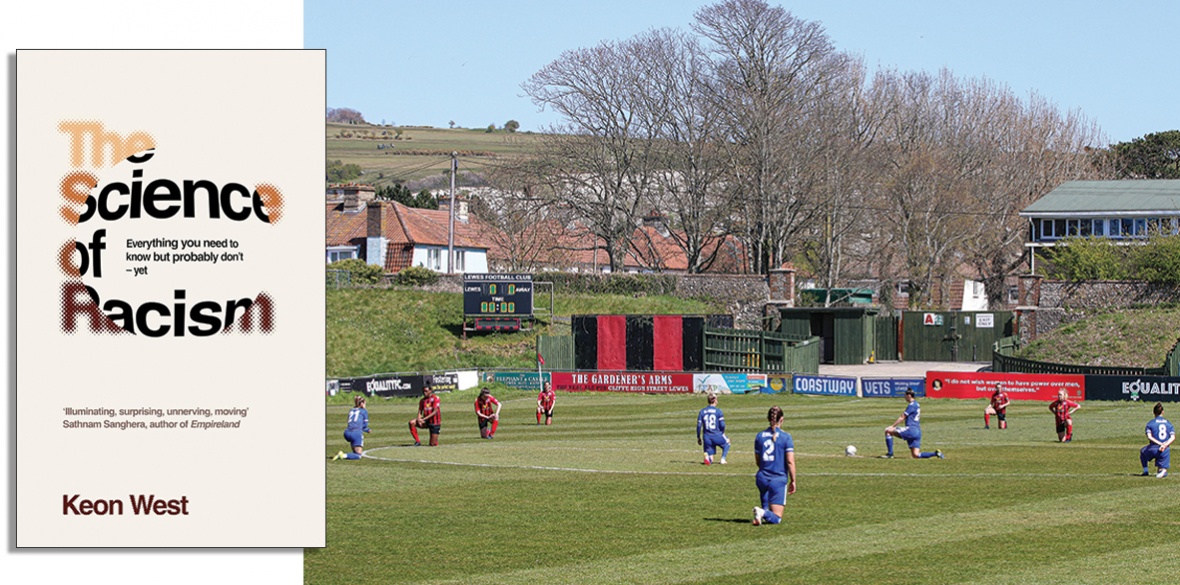This is the last article you can read this month
You can read more article this month
You can read more articles this month
Sorry your limit is up for this month
Reset on:
Please help support the Morning Star by subscribing here
The Science of Racism
by Keon West
Picador, £25
PROFESSOR Keon West’s mission in this book is to present the scientific evidence of racism. In a world where right-wing ideologues make divisive mischief with narratives of “two-tier” policing, anti-white racism and through the culture wars, a scientific approach is a welcome intervention in the debate.
West is well qualified to take on the task, with an impressive academic record and senior roles at high profile institutions, his expertise is indisputable. He has a clear intention to get his message out, and this book is a lay-reader-friendly guide through empirical studies of prejudice.
This is racism understood through an array of psychological studies and experiments. West explains scientific hypothesis testing, the double-blind randomised controlled trial and other methodological approaches to arrive at accurate evidence.
He is at pains to encourage scepticism and prompts the reader to look up sources to check his veracity. Anecdotal tales will not cut the mustard: “the plural of anecdotes is not data,” as he says. You need rigorous, repeatable, falsifiable testing of hypotheses.
What do these experiments and tests show? Racism exists, it is real, it is measurable. When identically qualified and experienced candidate CVs are sent out to employers, with the only variation being the identify of the candidate, the results are striking.
Some have names associated with black people and some have names associated with white people. White CVs get a callback rate of 25.5 per cent and black CVs get 9.5 per cent. The experiment is repeatable and follow-ups show the same variation.
While your ability to find work is a key factor in life’s outcomes, it’s not just in hiring practices where racism can be shown to exist. Scientific studies of practices in education, business and in friendships and relationships show significant prejudice.
But racism doesn’t just make life more difficult for minority groups, often it can end it too. In the US unarmed black people are more likely be shot than unarmed white people by the police. In the UK black people are between six and 27 times more likely to be stopped and searched by police than white people. Force is more likely to be used.
Even in medical treatment, black people were less likely to be offered life-saving treatment for heart attacks than white people. In short, the evidence shows that racism is a pervasive, destructive, life-limiting force in our society.
But it’s not in us, right? Not me. Wrong again, says West. People lie to others, lie to themselves, make excuses. You can do an implicit association test at the Project Implicit website to have a look at your own assumptions.
Diversity training? Sometimes this has a counter-productive outcome, everything is OK because you’ve done it, but nothing has changed. Racism is even internalised into the perceptions of black and ethnic minority people. Discrimination happens between groups, and evidence shows a clear hierarchy of racisms.
So far, so depressing. However, West does touch upon the fact that while there are mountains of evidence that demonstrates prejudice, the root issue is power. Prejudice by itself means little unless it can be wielded. To this end he suggests there are some actions that can be taken to concretely challenge racism and these involve actively redistributing power.
West’s book achieves his aim of showing that racism does indeed exist. However, one is somewhat left wondering in detail where racism comes from, and how to truly end its choke-hold. To be fair, that would be the subject of another book instead, and Kenan Malik’s Not So Black and White would be a good start to explore that.
Power relations are expressed most vividly in our present economic system, and while it’s entirely possible to make the small changes West suggests, in reality to truly defeat racism we need to also defeat the capitalist system. His take on this in a future book would be of great interest.







